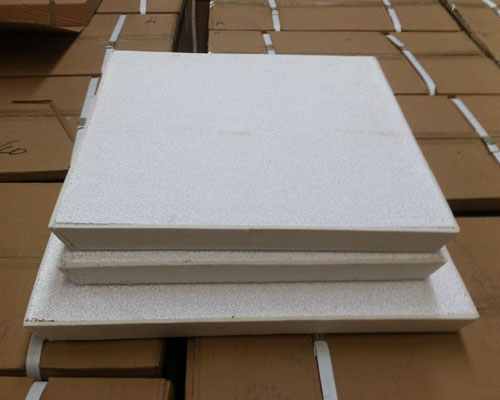Foundry Foam Ceramic Filter for Casting is a new type of filter developed since the 1970s. It has the advantages of higher filtration precision, lower cost, simple installation, and convenient operation and maintenance.
The filtering effect of Foundry Foam Ceramic Filter for Casting depends on the thickness, pore size and shape of the ceramic filter, and the speed at which the melt approaches the filter. The thicker the filter, the smaller the pore size and the longer the melt flow path filter plate time, the more chances of inclusions being deposited and colliding, and therefore more adsorbed on the pore walls.
The pores in the ceramic material are bent and twisted, so while the melt changes direction through the pores, the oxidized inclusions are caught by the collision with the pore wall and adhere to the pore wall. For example, the flow rate of the aluminum melt in the hole is very small, and the oxidized inclusions do not collide with the hole wall, so they will not be captured. Therefore, the best filtering speed must be determined for each type of filtered melt.
The framework material of the foundry foam ceramic filter is a refractory material resistant to corrosion by molten aluminum, and low-silica glass and an appropriate amount of organic matter are used as the binder, which can be used after forming and sintering. It can filter out solid impurities with a diameter> 6 um in the melt, and smaller particles can be stored in the melt as foreign inclusions. The ceramic filter is used in the casting of aluminum casting billets. The filtration mechanism of ceramic media is deep filtration, which is simple to operate and cost-effective.
The initial pressure head of the ceramic foam filter is 50-150mm. Once started, the working pressure head is maintained at about 6mmn. As the casting progresses, it gradually increases, and it can increase by 25-50mm at the end of the casting.

